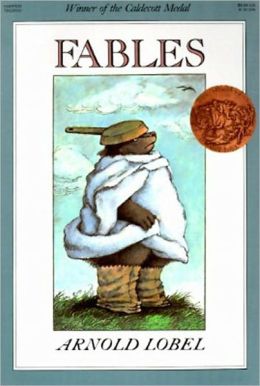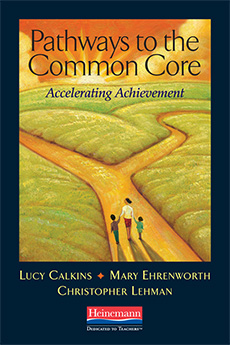How do we think about the CCSS?
How do we deconstruct and then reconstruct that document so that we understand it? So that it can be a useful document in our work? So that we can have clarity about its limitations?
As the CCSS entered the educational and political scene in full force, I was co-facilitating a Teacher Inquiry Group ( 2011 & 2012) comprised of teachers in the Columbus Area Writing Project. Our primary goal was to explore teacher research and conduct research in our own classrooms, as well as to teach research and writing with sources to our students. We presented a summary of our work at the National Council of Teachers of English Convention (NCTE 2012).
We read through many traditional and teacher inquiry research articles, as well as related educational documents that would inform our own inquiries.
We engaged in much conversation, questioning, and reflection.
And, of course, one of the documents we explored in this process was The Common Core Standards for English Language Arts & Literacy in History/Social Studies, Science, and Technical Subjects.
Our process of exploration, the resources we discovered, as well as our discussion points, may be helpful to you as you reflect individually in your classroom or collectively in your school, district, or community.
You may want to follow our path to explore the CCSS.
Preparation
As preparation for our CCSS session
we each read the entire document to get a feel for the context, the connections between and across grade levels, the locations of specific areas of study and skills, to determine overall strengths and overall weaknesses, to identify gaps we perceived, and so forth.
We also more closely examined the grade level(s) we each taught or those levels with which we were most familiar with the curriculum.
We then responded in writing (writing for 30 minutes) to the following reflective prompt:
Respond to the CCSS in terms of your overall feelings about the entire document, as well as your response to the levels with which you are most familiar. What strikes you as a dominant characteristic? What are you pleased to see? What surprises you about the Core Standards? What is missing? What is there that you feel shouldn’t be?
(Click here to read my response in the related post, Common Core Explorations- Part 2.)
In addition we considered The Framework for Post Secondary Writing by WPA/ NCTE/NWP, examining this document for comparisons to the CCSS, considering purposes, connections, content, structure, and so forth.
The final reading prior to this session included Relating Policy to Research and Practice: The Common Core Standards by Randy Bomer and Beth Maloch with the brief reflective writing (writing for 5-10 minutes) following the reading:
Briefly respond to the ideas expressed by Bomer and Maloch. How do their ideas connect with what you found as you reviewed the CCSS?
Our Session
Introduction
In the our face-to-face time we examined several additional resources, all in an effort to understand the CCSS, to determine our role as teachers, learners, and designers of curriculum and learning experiences, to consider how we would move forward in this coming Common Core World.
We began the study with the following EngageNY video featuring NYC Commissioner John King, David Colman, author of Common Core and Kate Gerson (which supports the Common Core Standards). Click here to watch the video
Discussion
The conversation in which we engaged, around this video and our readings was rich and multilayered—the brief points noted below in no way completely capture the depth and intensity of ideas presented and pondered.
Much discussion dealt with what we were surprised to see in the document based on what we have heard.
Some of the points made included:
Some of the points made included:
- Narrative writing is still included though it lessens as the students advance in grades.
- All teachers are responsible for teaching writing and reading in all content areas- the total percentages of recommended reading and writing are a composite of all that is done in all the classes. Will that really happen?
- We questioned the developmental abilities indicated for the standards and felt they lacked the rigor we currently expect from our students.
- Why are we assuming we are all going to college? Where are the career-related items?
- We, along with Bomer, felt the standards are coming from the top down instead from the. bottom up.
- International comparisons (which are done often) are always unfair---many countries practice tracking, selection for specific level advancement, and many also require payment to attend school. This is comparing oranges to apples because we educate everyone!
- Nothing is provided in the Common Core for intervention or acceleration. There is no consideration for English Language Learners ( ELL) or Special Education or Special Needs Students
- No Child Left Behind (NCLB) has created a situation where students don’t understand how to have civil debate and question comments made by others, or deal with things that are personally offensive. Students need to be taught how to have conversations.
- The dichotomy between the physical and. the virtual world also creates this situation-- there is no more sandbox, dress up, and so forth any longer in Kindergarten
- Fresh Air had a segment on internet contact lenses – as you look through them, what you view is annotated—so that you would never come in contact with something that would not be identified. In this same segment the power to simply transfer brain knowledge learned by one person to another, enabling the second person to “know” exactly what the first person knew, without actually doing the learning was discussed.
- So what are we learning? The way we teach children information must change!
- We all felt, no matter what the level student or building technology, that critical literacy and thinking should be taught all along.
- We considered the tremendous changes brought about when we switched from the slide rule to the calculator (or abacus to the calculator.)
UNWRAPPING THE STANDARDS
We watched a brief video by Angela Stockman that details a way to “Unwrap the Standards” to take a closer look—this may be helpful if you are called upon to lead a PD session or small discussion groups on the standards. Click here to watch the video
The steps to examining a particular standards shared in the video are:
- Write out the standard
- Circle the Verbs=Skills- what they have to do
- Underline the Nouns=Content and Concepts, what they have to know
- Identify the Big Ideas-- Transferrable Knowledge-how it is applied
- Ask an Essential Question-- Relating to your own curriculum, students, system, or implications.
- Indicate where any further investigation is needed.
CRITICALLY EXAMINING ONE STANDARD
We closely examined one of the Writing standards for research (Standard #7 .Grade 11-12 on page 46 and 47)
Conduct short as well as more sustained research projects to answer a question (including a self-generated question) or solve a problem; narrow or broaden the inquiry when appropriate; synthesize multiple sources on the subject,demonstrating understanding of the subject under investigation.
And then, beginning at Kindergarten, we traced that standard all the way through to Grade 12 to see how the skills and concepts are sequenced moving towards the goal.
Most of us felt they were not rigorous enough—first graders could do more for example to move to independence, doing some beginning problem-solving projects, and also can asking questions.
We concluded that that same standard would be appropriate for each grade level-- but each grade level could have indicators showing what is looks like at that level.
Literature Connection
We ended most sessions in our inquiry group with a related literature selection. This session was no different. We read Arnold Lobel's wonderful fable, The Crocodile in the Bedroom (Fables, page 2) and considered the role of both messiness and order in the consideration of the CCSS, creativity and reality, and our teaching lives. You may want to include this consideration in your exploration, as well.
Additional CCSS Resources
Below are additional resources that have provided me personally, and many teachers I know, with information, support, and further food for thought:
Pathways to the Common Core: Accelerating Achievement by Lucy Calkins, Mary Ehrenworth & Christopher Lehman
was and excellent resource and most helpful in deconstructing each standard, as well as considering professional development strategies.
was and excellent resource and most helpful in deconstructing each standard, as well as considering professional development strategies.
An excellent blog by Burkins and Yaris has also been extremely helpful this year in delving into the CCSS in a variety of critical and creative ways.
And, finally, this article, The Common Core Standards: a Defense by Grant Wiggins, posted by Jim Burke on Twitter, was the article that finally helped me decide to write about our group's experience with the CCSS.
Today's Deeper Writing Possibility
Review the Common Core State Standards (CCSS). You may want to choose one or more of the resources above to support you in this review.
Write a reflective piece in response to your review of the CCSS.
Respond to the CCSS in terms of your overall feelings about the entire document, as well as your response to the levels with which you are most familiar. What strikes you as a dominant characteristic? What are you pleased to see? What surprises you about the Core Standards? What is missing? What is there that you feel shouldn’t be?
You are invited to share your reflections in the comment section of this blog.
You may also want to Read The Crocodile in the Bedroom (Fables page 2) by Arnold Lobel and reflect and write about the order and the messiness, the creativity and reality in the Common Core State Standards, in your teaching life or in your personal life.
You may also want to Read The Crocodile in the Bedroom (Fables page 2) by Arnold Lobel and reflect and write about the order and the messiness, the creativity and reality in the Common Core State Standards, in your teaching life or in your personal life.



Now that I've got some extra time on my hands, I want to go back to the readings we read so long ago. Fourth and fifth grade will be implementing CCSS next year in Hilliard. I've been dabbling in them this school year, but I want to make sure I'm hitting everything for next year. Thanks for all this detail Robin!
ReplyDeleteHi Julie,
ReplyDeleteEach time I go back and review any part of the work we did in our Inquiry Group I am amazed at the thinking and questioning and amount of food for thought ...still.
Rest up and Read :-)